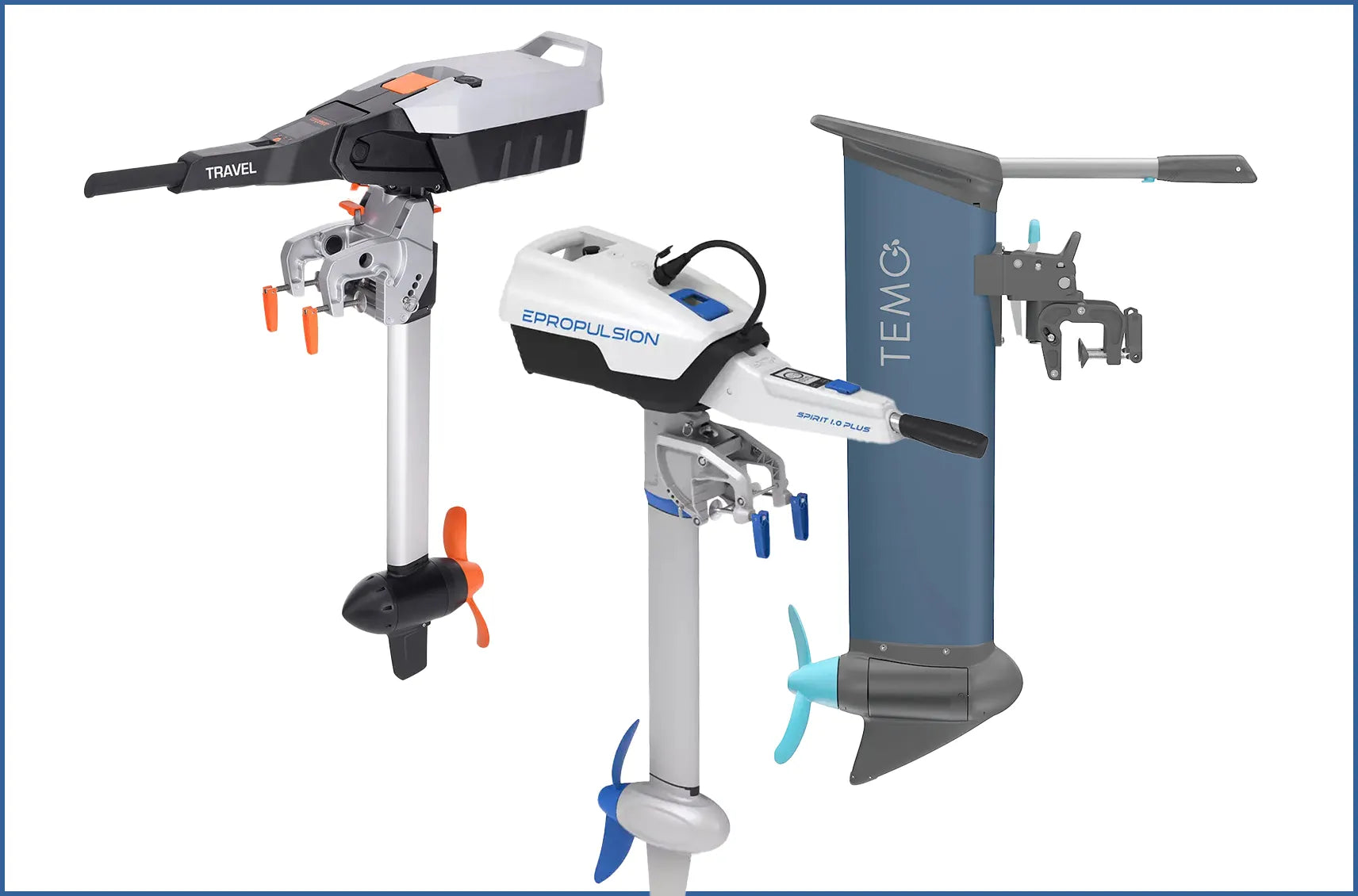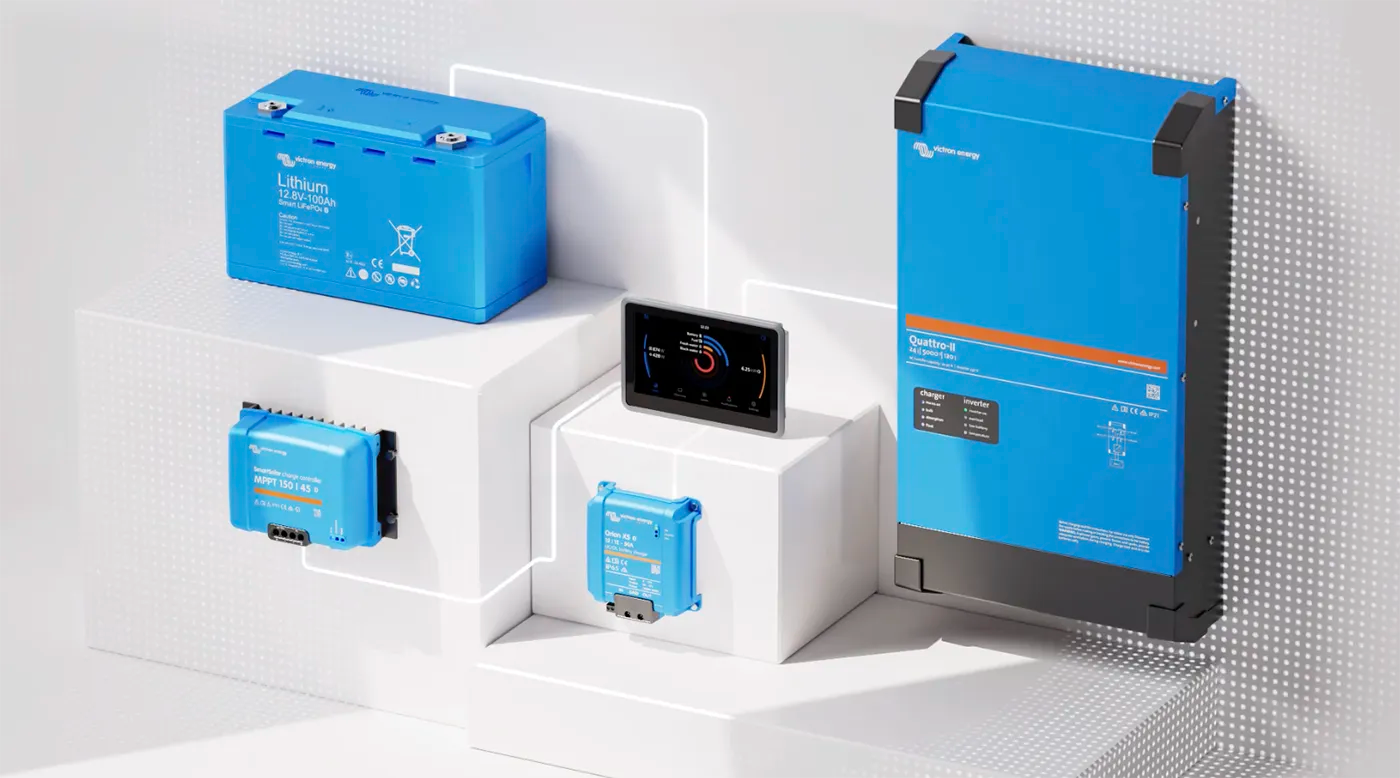Choose Lithium-Ion Batteries over Lead-Acid for Your Marine Battery
Selecting the right battery is crucial for any boat owner. In marine environments, where reliability and performance are essential, the battery you choose can impact everything from safety to efficiency.
In recent years, lithium-ion technology has emerged as the superior option, offering unmatched performance and longevity. For marine, RV, and off-grid applications, lithium-ion batteries are the clear choice.
Understanding Battery Types
Marine batteries traditionally fall into three main types of lead-acid technology: flooded, AGM (Absorbed Glass Mat), and gel. Flooded batteries are the most affordable but require regular maintenance and are prone to spilling. AGM and gel batteries are sealed, reducing maintenance needs, but still have limitations when it comes to efficiency, weight, and lifespan.
Lithium-ion batteries, on the other hand, use advanced chemical processes that offer a host of advantages. They have rapidly gained popularity due to their superior energy storage capacity, longer lifespan, and low maintenance requirements.
Key Benefits of Lithium-Ion Batteries
- Longer Lifespan: One of the standout benefits of lithium-ion batteries is their lifespan. A typical lead-acid battery might last anywhere from 3 to 5 years, depending on care and use. In contrast, lithium-ion batteries can easily last 10 years or more, offering a much longer service life. This longevity translates into fewer replacements, saving money and effort over time.
- Higher Energy Efficiency: Lithium-ion batteries are far more energy-efficient than their lead-acid counterparts. They can be discharged up to 80-90% of their total capacity without suffering damage, whereas lead-acid batteries typically need to be recharged after discharging just 50%. This means you get more usable power from a lithium battery, making it ideal for marine environments where every bit of stored energy counts.
- Weight and Space Savings: Lithium-ion batteries are significantly lighter than lead-acid ones. They offer the same power with up to 50% less weight, a critical advantage in marine settings where reducing weight can improve boat speed and fuel efficiency. Their compact size also frees up valuable storage space on board.
- Faster Charging Times: Another key advantage is that lithium-ion batteries charge much faster than lead-acid batteries. Whether you're at the marina or relying on solar panels while anchored, faster charging means less downtime and more time enjoying your boat.
Comparing Depth of Discharge
One of the biggest performance differences between lead-acid and lithium-ion batteries is their depth of discharge (DoD). Lithium-ion batteries can handle much deeper discharges without damage, meaning you can utilize more of the battery's stored power. Additionally, they maintain a consistent voltage throughout the discharge cycle, ensuring stable performance and preventing sudden power drops.
Maintenance-Free and Safety Features
Traditional lead-acid batteries require regular maintenance, including checking fluid levels and cleaning terminals. In contrast, lithium-ion batteries are completely maintenance-free, allowing you to focus more on enjoying your time on the water rather than worrying about upkeep.
Lithium-ion batteries also come equipped with advanced Battery Management Systems (BMS), which offer protection against overcharging, overheating, and over-discharging. This smart technology ensures the battery operates safely and efficiently, providing peace of mind in any marine situation.
Use Cases and Applications
While lithium-ion batteries are rapidly becoming the standard choice for marine applications, they are also ideal for RVs and off-grid systems. Their lightweight design, fast charging, and long lifespan make them perfect for a wide range of energy storage needs, whether you're on the water, on the road, or living off the grid.
Why Lithium-Ion is the Best Marine Battery Technology
Lithium-ion batteries offer significant advantages over traditional lead-acid options. They last longer, provide more usable power, reduce weight, and charge faster—all while requiring zero maintenance. For anyone looking to upgrade their marine battery setup, lithium-ion technology is the clear choice.
Have a boat, RV, or wanting to live off grid? Visit Blue Marine to look through our selection of lithium-ion batteries and accessories to improve your power systems today.


